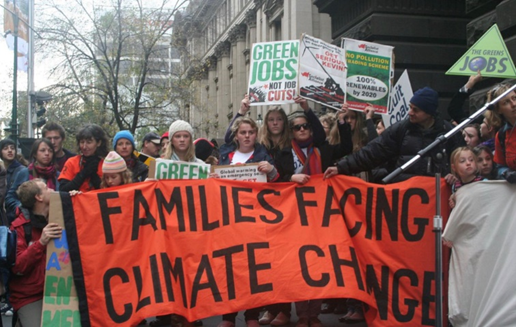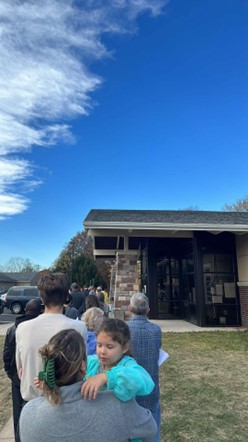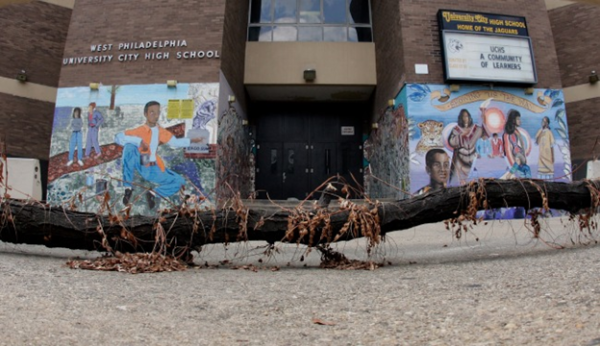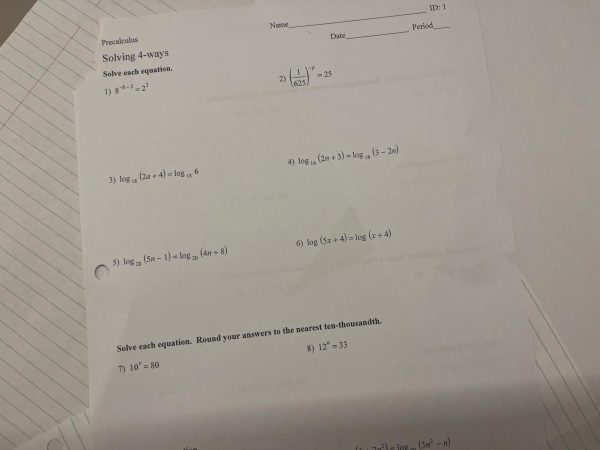Renewable Energy: A Smart Move or A Risky Decision

1 Climate Emergency – Families facing Climate Change
Climate change affects every part of our lives from our health and safety to the cup of coffee we drink in the morning. This issue is rapidly progressing, but it can be fixed if we act fast.
Scientists are broadly in agreeance that the climate crisis is real, and its impacts are progressing rapidly (Infobase). One way to slow the natural progression of climate change and reverse the more damaging effects is to switch to a sustainable economy that does not rely on fossil fuels. Those who oppose switching to renewables argue that it will damage the nation’s economy. Specifically, people are concerned that such a switch will hinder the country’s energy independence. While it is true that the United States became an annual net total energy exporter of crude oil in 2019, the same is not true for petroleum products, natural gas, and coal (U.S. Energy Facts – Imports and Exports – U.S. Energy Information Administration). This fact does not mean the country is cushioned from global oil market disruptions. Oil prices are set based on global supply and demand, not domestic. In this regard, the United States cannot be truly energy independent.
Flora Cardoni, Field Director at PennEvironment, weighed in on the subject, “Investing in more fossil fuels, expanding fossil fuels, more oil and gas drilling just entrenches us further into the global fossil fuel market. To become truly energy independent, we should be relying on clean, renewable energy right here in this state… If all of our energy is being produced on site and used on site, that’s the best way to have energy independence.”
Climate change is a global issue that requires political change to enact meaningful solutions. If you want to help, make your voice heard. Contact your elected officials to let them know you support this transition from fossil fuels. By emailing, petitioning, or advocating online, you can help create a cleaner, safer future.
Sources
Carton, B., & Natal, J. (2022, October 5). Further Delaying Climate Policies Will Hurt Economic Growth. (n.d.). IMF.
https://www.imf.org/en/Blogs/Articles/2022/10/05/further-delaying-climate-policies-will-hurt-economic-growth
Infobase Learning – Login. (n.d.). Login.infobase.com.
https://icof.infobase.com/articles/QXJ0aWNsZVRleHQ6MTY1MDg=?q=US+Policy+Climate+Change
Mojon, B., Monnet, C., & Jondeau, E. (2021, April 16). Brown assets might be the next subprime. CEPR.
https://new.cepr.org/voxeu/columns/brown-assets-might-be-next-subprime
Saha, D., Shrestha, R., & Jordan, P. (2022). How a Clean Energy Economy Can Create Millions of Jobs
in the US. Www.wri.org. https://www.wri.org/insights/us-jobs-clean-energygrowth#:~:text=Manufacturing%20clean%20energy%20technologies%20domestically
U.S. energy facts – imports and exports – U.S. Energy Information Administration (EIA). (2016). Eia.gov.
https://www.eia.gov/energyexplained/us-energy-facts/imports-and-exports.php
Urpelainen, J. N. and J. (2022, April 12). The US should treat climate policy as economic policy.
Brookings. https://www.brookings.edu/research/the-us-should-treat-climate-policy-as-economic-policy/
Vahlsing, C. (2022, April 4). Quantifying Risks to the Federal Budget from Climate Change. The White House.
Madison Hapak, Grade 12. Interests/hobbies include crocheting, working with animals, art, and hanging out with friends. Madison plans to go to attend Drexel...




